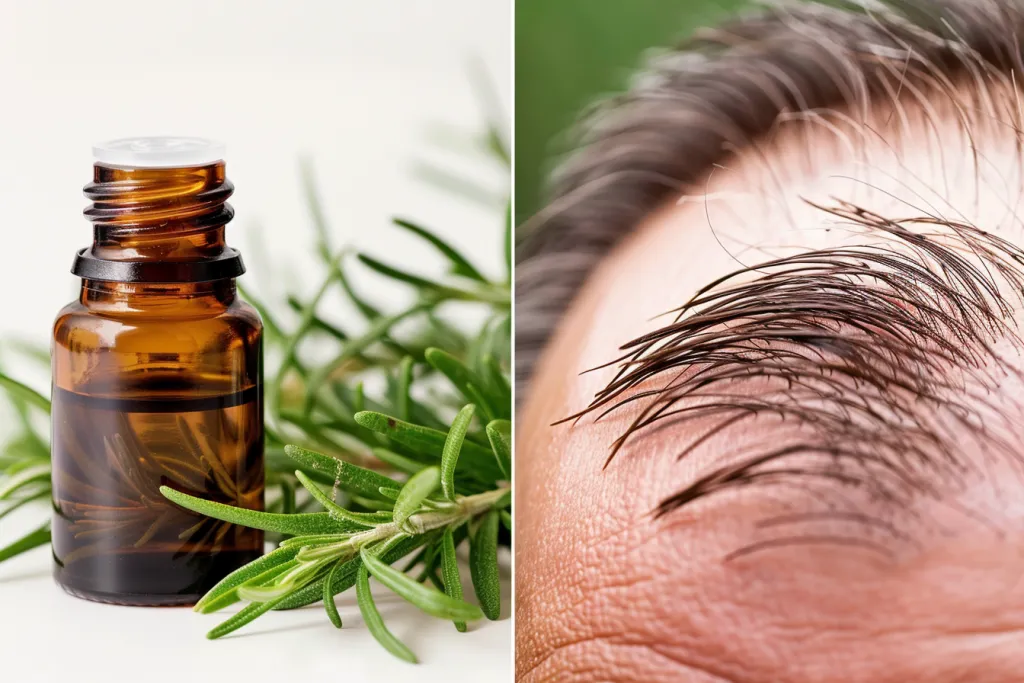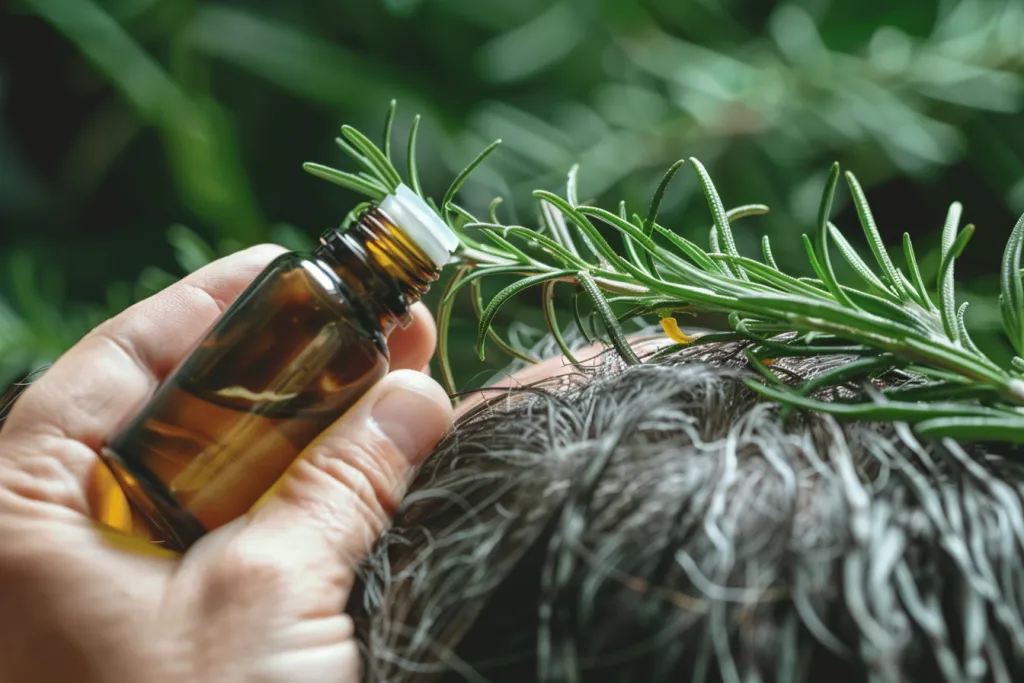In the quest for healthier, fuller hair, natural remedies have taken center stage, with rosemary oil emerging as a significant player in the battle against hair loss. This article delves into the essence of rosemary oil, shedding light on its benefits, application methods, and scientific backing, providing a holistic view of how this natural oil can contribute to hair health. By understanding the nuances of rosemary oil for hair loss, individuals can make informed decisions about integrating it into their hair care regimen.
Table of Contents:
– The science behind rosemary oil and hair growth
– How to use rosemary oil for hair loss
– The benefits of rosemary oil for your scalp and hair
– Comparing rosemary oil with other hair loss treatments
– Incorporating rosemary oil into your hair care routine
The science behind rosemary oil and hair growth:

Recent studies have begun to unveil the potential mechanisms through which rosemary oil may influence hair growth. One of the primary components of rosemary oil, 1,8-cineole, has been shown to improve blood circulation to the scalp, which is crucial for delivering nutrients to hair follicles and promoting hair growth. Additionally, rosemary oil’s anti-inflammatory properties may help in reducing scalp inflammation, a common culprit behind hair loss.
Moreover, rosemary oil is believed to inhibit the action of dihydrotestosterone (DHT), a hormone associated with hair loss, especially in cases of androgenetic alopecia. By targeting the underlying causes of hair thinning, rosemary oil offers a promising natural alternative for those seeking to combat hair loss without resorting to chemical treatments.
How to use rosemary oil for hair loss:

Incorporating rosemary oil into your hair care routine can be done in several ways. A popular method is to mix a few drops of rosemary oil with a carrier oil, such as coconut or jojoba oil, and apply it directly to the scalp. Massaging the oil mixture into the scalp for a few minutes can enhance its absorption and effectiveness.
Another approach is to add rosemary oil to shampoo or conditioner. This not only imparts the benefits of rosemary oil with each wash but also makes for a convenient application method. Regardless of the method chosen, consistency is key. Regular use of rosemary oil is essential to achieve noticeable results in hair growth and health.
The benefits of rosemary oil for your scalp and hair:

Beyond its potential to promote hair growth, rosemary oil offers several other benefits for the scalp and hair. Its antimicrobial properties can help in combating dandruff and scalp infections, leading to a healthier scalp environment. Additionally, the antioxidant properties of rosemary oil protect hair follicles from damage caused by free radicals and environmental stressors.
Rosemary oil also has the ability to strengthen hair, reduce breakage, and improve shine, making it a versatile addition to any hair care routine. Its soothing scent adds a therapeutic dimension, turning hair care into a relaxing ritual.
Comparing rosemary oil with other hair loss treatments:

When compared to other hair loss treatments, such as minoxidil or finasteride, rosemary oil offers a natural, side-effect-free alternative. While not as immediately potent as some pharmaceutical treatments, rosemary oil provides a holistic approach, addressing not just the symptoms but the overall health of the scalp and hair.
Furthermore, rosemary oil’s accessibility and affordability make it an attractive option for those looking to enhance their hair care routine without significant financial investment. Its multi-faceted benefits and natural composition also appeal to individuals seeking to minimize their exposure to chemicals.
Incorporating rosemary oil into your hair care routine:

Embracing rosemary oil as part of your hair care routine requires patience and experimentation. Finding the right concentration and application method that works for your hair type and concerns is crucial. Starting with a lower concentration of rosemary oil and gradually increasing it can help in gauging your scalp’s tolerance and response.
Additionally, combining rosemary oil with other natural oils or ingredients can amplify its benefits and cater to specific hair needs. Creating a personalized hair care regimen that includes rosemary oil can lead to healthier, more resilient hair over time.
Conclusion:
Rosemary oil presents a compelling, natural option for those grappling with hair loss. Its ability to promote hair growth, coupled with its scalp and hair benefits, makes it a worthy addition to any hair care routine. By understanding and leveraging the properties of rosemary oil, individuals can embark on a journey toward healthier, fuller hair, backed by nature’s own remedy.




